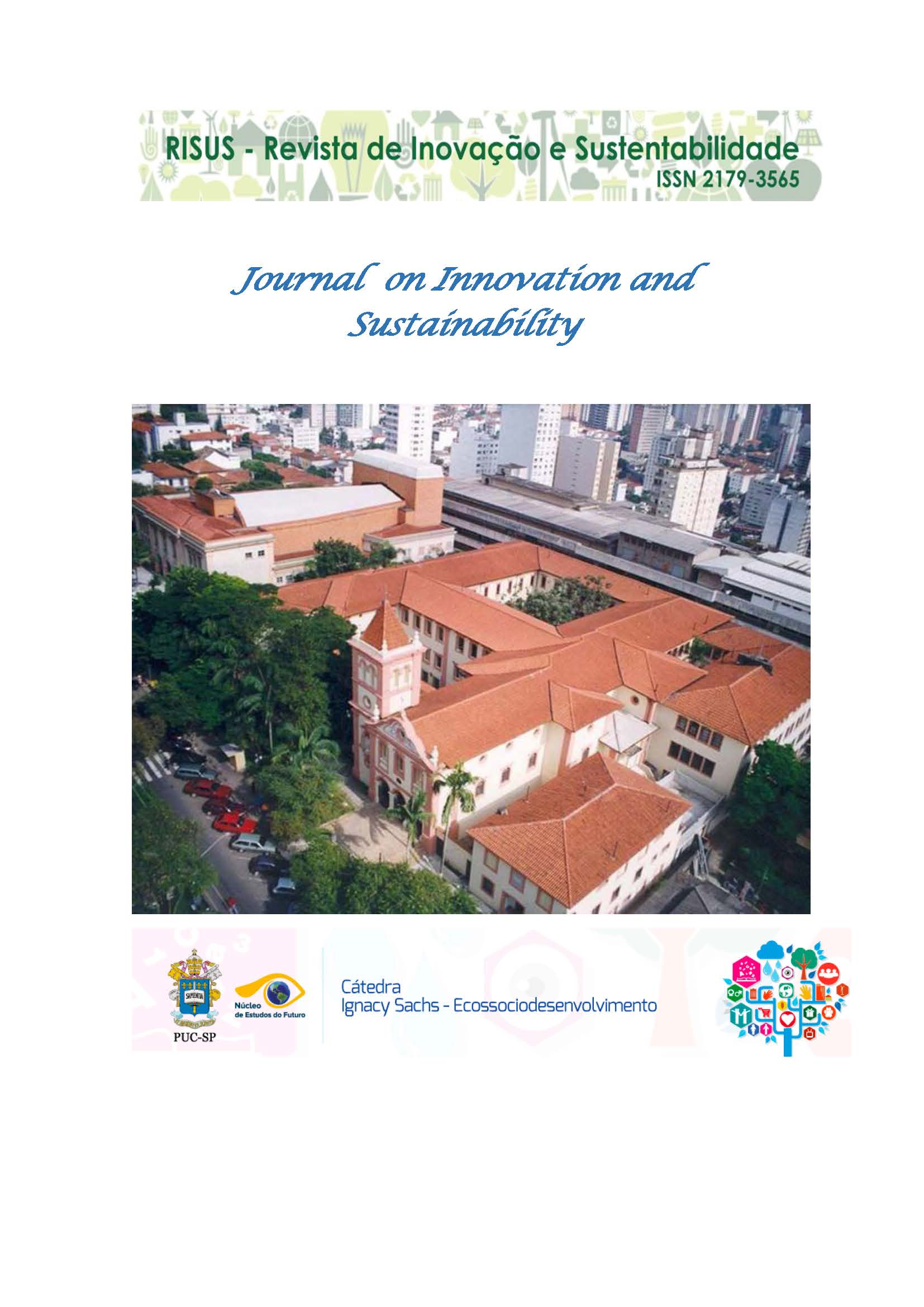As funções do orquestrador nos ecossistemas de inovação
DOI:
https://doi.org/10.23925/2179-3565.2022v13i2p4-13Palabras clave:
ecosistemas de innovación, orquestación, orquestadorResumen
El papel de la orquestación es fundamental para el éxito de los ecosistemas de innovación. Entender las funciones del orquestador permite mejorar la toma de decisiones estratégicas, así como la construcción de hojas de ruta para la evolución del ecosistema. Así, el objetivo de este artículo es analizar los roles del actor orquestador en los ecosistemas de innovación. Para lograr el objetivo propuesto, se realiza una revisión integrativa de la literatura. La revisión se realizó en las bases de datos Scopus; Web of Science, Science Direct y Scielo. Como resultado, se enumeraron y discutieron 24 funciones realizadas por los orquestadores de los ecosistemas de innovación. En general, se estableció que el orquestador debe entender el ecosistema, administrarlo, asegurar un ambiente de intercambio adecuado, monitorear y renovar continuamente el ecosistema. Establecer una misma visión y liderazgo también son aspectos importantes.
Citas
Adner, R. Match your innovation strategy to your innovation ecosystem. Harvard Business Review, v. 84, n. 4, p. 98, 2006.
Botelho, L. L. R.; Cunha, C. C.; Macedo, M. O método da revisão integrativa nos estudos organizacionais. Gestão e sociedade, v. 5, n.11, p.121-136, 2011.
Gastaldi, L.; Corso, M. Academics as Orchestrators of Innovation Ecosystems: The Role of Knowledge Management. International Journal of Innovation and Technology Management, v. 13, n. 5, 2016.
Grandstrand, O.; Holgersson, M. Innovation ecosystems: A conceptual review and a new definition. Technovation, v. 90-91, 2020.
Haines, T. Developing a startup and innovation ecosystem in regional Australia. Technology Innovation Management Review, v. 6, n. 6, p. 24-32, 2016.
Iansiti, M.; Levien, R. Strategy as ecology. Harvard Business Review, v. 82, n. 3, p. 68-78, 126, 2004.
Jackson, D. J. What is an Innovation Ecosystem?. National Science Foundation, Arlington, VA, 2011.
Jucevicius, G.; Juceviciene, R.; Gaidelys, V.; Kalman, A. The emerging innovation ecosystems and “Valley of death”: Towards the combination of entrepreneurial and institutional approaches. Engineering Economics, v.27, n,4, p. 430-438, 2016.
Leten, B.; Vanhaverbeke, W.; Roijakkers, N.; Clerix, A.; Van Helleputte, J. IP Models to Orchestrate Innovation Ecosystems: IMEC, a Public Research Institute in Nano-Electronics. California Management Review, v. 55, n. 4, p. 51–64, 2013.
Markkula, M.; Kune, H. Making Smart Regions Smarter: Smart Specialization and the Role of Universities in Regional Innovation Ecosystems. Technology Innovation Management Review, v. 5, n. 10, p. 7–15, 2015.
Oksanen, K.; Hautamaki, A. Transforming regions into innovation ecosystems: A model for renewing local industrial structures. Innovation Journal, v. 19, n. 2, 2014.
Prokopenko, O.; Eremenko, Y.; Omelyanenko, V. Role of international factor in innovation ecosystem formation. Econ. Ann, v. 21, p. 3-4, 2014.
Rajahonka, M.; Pienonen, T.; Kuusisto, R.; Handelberg, J. Orchestrators of Innovation-Driven Regional Development: Experiences from the INNOFOKUS Project and Change2020 Programme. Technology Innovation Management Review, v.5, n.10, p. 52–62, 2015.
Ritala, P.; Almpanopolou, A. In defense of ‘eco’ in innovation ecosystem. Technovation, v. 60, p. 39-42, 2017.
Romano, A.; Passiante, G.; Vecchio, P. Del; SECUNDO, G. The innovation ecosystem as booster for the innovative entrepreneurship in the smart specialization strategy. International Journal of Knowledge-Based Development, v. 5, n. 3, p. 271, 2014.
Russell, M. G.; Smorodinskaya, N. V. Leveraging complexity for ecosystemic innovation. Technological Forecasting and Social Change, [s. l.], v. 136, p. 114–131, 2018.
Russo-Spena, T.; Tregua, M.; Bifulco, F. Searching through the jungle of innovation conceptualizations: System, network and ecosystem perspectives, Journal of Service Theory and Practice, 2017.
Russo-Spena, T.; Tregua, M.; Bifulco, F. Knowledge Practices for an Emerging Innovation Ecosystem. International Journal of Innovation and Technology Management, v. 13, n. 05, 2016.
Schaeffer, P.; Fisher, B.; Queiros, S. Beyond Education: The Role of Research Universities in Innovation Ecosystems. Foresight and STI Governance, v. 12, n. 2, p. 50–61, 2018
Spinosa, L. M.; Krama, M. R.; Hardt, C. Desenvolvimento urbano baseado em conhecimento e ecossistemas de inovação urbanos: uma análise em quatro cidades brasileiras. EURE (Santiago), v. 44, n. 131, p. 193–214, 2018.
Still, K.; Huhtamaki, J.; Russell, M. G.; Rubens, N. Insights for orchestrating innovation ecosystems: the case of EIT ICT Labs and data-driven network visualizations. International Journal of Technology Management, v. 66, n. 2-3, p. 243, 2014.
Su, Y. S.; Zheng, Z. X.; Chen, J. A multi-platform collaboration innovation ecosystem: the case of China. Management Decision, v. 56, n. 1, p. 125–142, 2018.
Valkokaria, K. Business, Innovation, and Knowledge Ecosystems: How They Differ and How to Survive and Thrive within Them. Technology Innovation Management Review, [s. l.], p. 17–24, 2015.
Viitanen, J. Profiling Regional Innovation Ecosystems as Functional Collaborative Systems: The Case of Cambridge. Technology Innovation Management Review, v. 6, n. 12, p. 6–25, 2016.
Walrave, B.; Talmar, M.; Podoynitsyna, K. S.; Romme, A. G. L.; Verbong, G. P. J. A multi-level perspective on innovation ecosystems for path-breaking innovation. Technological Forecasting and Social Change, v. 136, p. 103–113, 2018.
Woronowics, T.; Boronowsky, M.; Wewezer, D.; Mitasiunas, A.; Seidel, K.; Cotera, I. R. Towards a Regional Innovation Strategies Modelling. Procedia Computer Science, v. 104, p. 227–234, 2017.

Descargas
Publicado
Número
Sección
Licencia
This Journal is licensed under a Creative Commons Attribution-Non Commercial-No Derivers 4.0 International license.
1.The author (s) authorize the publication of the article in the journal;
2.The author (s) warrant that the contribution is original and unpublished and is not in the process of being evaluated in other journal (s);
3. The journal is not responsible for the opinions, ideas and concepts emitted in the texts, as they are the sole responsibility of its author (s);
4. The editors are entitled to make textual adjustments and to adapt the articles to the standards of publication.

